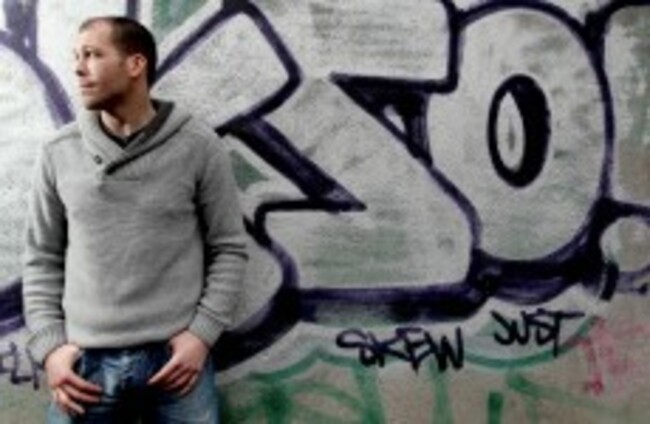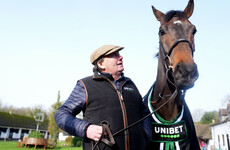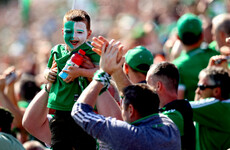SOMETIMES IN THIS game, you can let the wheels of tape recorder do the work for you.
And over the years, that has been the case with that golden generation of Armagh players, moreso than any others.
You sat and listened, while inside you could but smile, as their brutal honesty bubbled naturally to the surface without the need to prod and pry.
They may have revolutionised football for 70 minutes most weeks, but off the field they were equally trendsetting, refusing to let their growth in stature and quality result in a predictable sanitisation of their words.
There was Oisín McConville who not just put up with abuse about his gambling habits every time he took to the pitch, but had to endure lies too.
In writing his book, I realised that while it stung, he learned to accept being wound up about his major flaw, but it was the falsities he had to listen to which hurt even more.
Rumours spread that he had beaten up the McEntees’ sister, first making it onto a wall on the Tyrone border in the form of grafitti before making it into the words of opposition players. But even when his world was crumbling, he put his head down and got on with it. He realised this was part of the game and every man of that calibre was out to gain the tiniest of advantages.
Every Sunday famously became about inches, and besides, all of it was within the actual rules of the game, if not the moral rules that govern less-intense every-day life.
There was Stevie McDonnell too. A couple of years ago, while sitting in his Dundalk office, he got talking about the insults he’d both taken and given over the years. In 2007, during a spell of bad form, his own supporters turned on him during a league match against Louth.
“My family were in the crowd and I guess people at games need to remember that,” he told me. “My family were unhappy and said that the Armagh fans had been spoiled and forgotten so quickly. I’ve scored many a goal but the goal that day was one of the best. It not only shut up the Louth supporters but it shut up our own.”
The following season there was yet more unpleasentness. After a drawn Ulster final where he spent the day listening to Fermanagh goalkeeper Ronan Gallagher fill his ears, he stayed quiet and his six points off Shane Goan earned his side a replay and him man-of-the-match. A week later when he netted to secure the title he let rip, screaming about a picture of Gallagher’s sister he’d seen in a local paper and commenting about her clevage in less than polite terms.
“I don’t regret anything I said to him,” he noted of that day. “You come up against certain people and a lot are shooting their mouth off but he never stopped. Funny that, because he’s never proven himself as a player. In my opinion anyway. I think after the first game he realised it did no good then and his own teammates told him to shut the hell up. When I got the goal, that was my time to show that I was taking none of his shit.”
‘Hysterics’
But both men took all of that on the chin, just as McConville had before them, because they all realised that this was part and parcel of Gaelic football and thinking anything else is simply naive. It’s not nice but little about getting to the top is, be it the edge you bring to training, the sacrifices you make when it comes to family or the words you bring to the field. Previous Armagh players knew how to play every side of the game and they had to in order to make it to the top in 2002.
Yet it’s against that recent background that Ciarán McKeever reacted over nothing more than being called “a British bastard” in O’Moore Park a couple of weeks back and his county turned it into an issue to get him off a suspension for kicking a player in the tunnel.
If we must come over all hysterical, to use Laois manager Justin McNulty’s one-word synopsis of it, then at least let’s be correct in what we are being hysterical about.
When a Laois player that we won’t name came out with this, it wasn’t racism. It was many things including ill-informed and stupid, especially given his manager’s home place and the player’s profession, but it wasn’t racism because British isn’t a race. And secondly, no matter your background, no one from Northern Ireland can be accurately described as British and this is a common but important error. McKeever comes from the United Kingdom of Great Britian and Northern Ireland. The word in italics is there for a specific reason, to differentiate between the two.
But aside from specifics like these, there’s a bigger issue here when it comes to football and McKeever’s initial reaction and his county’s subsequent reaction have left a large question mark, hooked onto all of them like a ball and chain that they quickly need to drop. Given the needlessly public spat that broke out, you wonder have they left behind all they learnt during better days where mere words wouldn’t get in their way and where they wouldn’t risk losing a man and by extension an advantage and possibly a game because of some ridiculous jibe. Instead, just a handful of years ago, they’d bottle it up and use it to constructively.
Considering what’s happened in recent times, of course it’s dangerous to call someone from McKeever’s area British, if only because you never know what may have become of his family and friends over the course of The Troubles. But to make it at the top of Gaelic football, just like McConville and McDonnell, you have two choices. You can become a player with a motor as they call it in American football, a guy who turns his pain into an unstoppable drive, however unhealthy that may be.
Indeed, some players in the States are known to be high motor because even in training they can’t turn it off and blot out their background. However, if you cannot channel it, then you have to leave that pain and sensitivity in the dressing room, otherwise you become a liability no matter your quality.
Not the first time
I’d be amazed if this is the first time McKeever has heard something like this, just as I’d be amazed if a guy who is as physically imposing and has enough of a football brain to be the International Rules vice-captain never mentally trained in how to deal with taunting. And I’d be even more amazed if, after this whole debacle, when a championship game is on the line he isn’t called a “British bastard” over and over again.
How he reacts then will tell a lot about him and it just may restore the tough reputation of his side.
Here’s hoping because the most brilliant Armagh team ever encompassed the best and worst of where they came from and used it all in a positive sense.
As for this Armagh, rather than listen in the present, they would do well to learn from that past.












funny a guy from the kingdom playing for the queens county or kings? should be at that mouthing considering how pathetic they are not to mention his manager coming from armagh.shows a lack of brains.any if you have to listen to shit like that on the way to the top of your fav pass time,betterb of playing junior c.